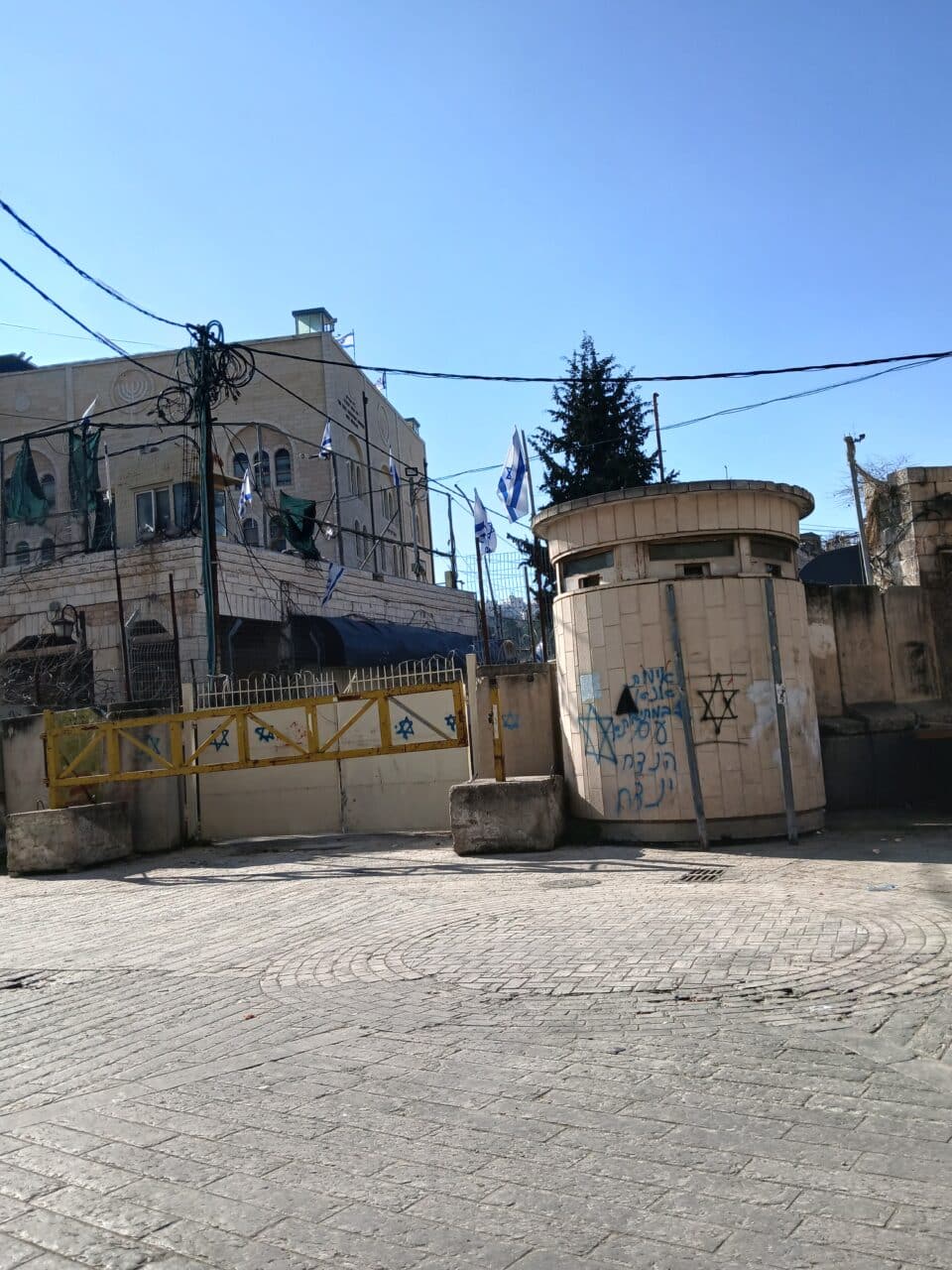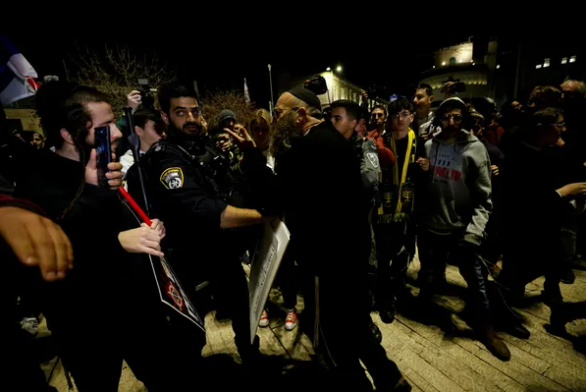Tag: Settlement
-

Visual diary: a day in Umm al-Khair
4 January 2026 Good morning from Umm Al-Khair. This is the village where Awdah Hathaleen was born, did community organizing, started a family, was involved with the production of the Oscar-winning film “No Other Land,” and then on July 28th, 2025 was murdered by a settler. Many, many international activists from all over the world…
-

Visual diary: a day in occupied Al Khalil
Friday, 26 December, 2025 Good evening from Al Khalil! It’s a really beautiful city, and has been suffering severely from the combination of colonization and lack of tourism post-Oct 7. Shop doors welded shut by the occupation to prevent Palestinians from making a living in the Old City, with layers of graffiti revealing resistance and…
-

Far Right Settler March Demanding Control of Al Aqsa Mosque Disbanded for Inciting Violence
8 December 2023 | International Solidarity Movement | Occupied East Jerusalem Marking the first night of Hanukkah, on December 7, around 150 ultra-nationalist, Kahane terrorist linked extremist settlers demanding “full Jewish control” of Al Aqsa Mosque shouted racist abuse and waved banners of violent incitement against Al Aqsa Mosque. The violent-extremist group was granted authorization…
